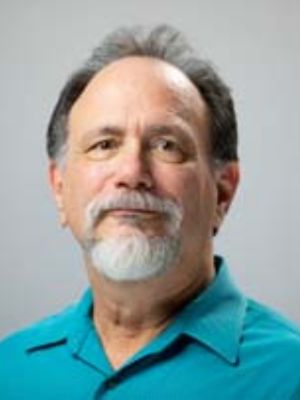Phil Barak
Professor
Office Location
167A Soils Bldg.

Phillip Barak is a professor in the Department of Soil and Environmental Sciences at the University of Wisconsin-Madison. He earned his Ph.D. in Soil Science from the Hebrew University of Jerusalem in 1988 and is a classically trained soil chemist and mineralogist. Over the years, he has made significant contributions to the field of soil and environmental sciences, particularly in nutrient recovery and upcycling from wastewater.
Professor Barak’s recent research focuses on the recovery of plant nutrients from wastewater, aiming to return these nutrients as high analysis fertilizers to agriculture in a sustainable manner. His work has led to the development of innovative methods for recovering phosphorus by precipitation as struvite and brushite and nitrogen as ammonia by electrodialysis, both from various types of wastewater, including municipal treatment plants, manure digesters, and manure lagoons. He is the inventor of the commercially-available CalPrex system for phosphate removal at wastewater treatment plants. Other recent research discovered the presence of nutrient deficiencies of nickel in Wisconsin soils and innovated the use of K-41 stable isotope to further potassium fertilizer research. He is also well-known for his earlier work on iron nutrition in calcareous soils, zinc chemistry, numerical smoothing of data (including as a package in R), and soil acidification and cation exchange capacity reduction due to fertilizers.
In addition to his research, Professor Barak is an accomplished educator. In the intro soils course at the UW-Madison, he teaches lessons on soil and water chemistry, mineralogy, and element cycling, as well as soil fertility and fertilizers, to both undergraduate and graduate students. He recently taught “Toxicants in the Environment” to graduate students from the Environmental Remediation and Management, the Molecular and Environmental Toxicology, and Civil and Environmental Engineering programs. He curates the Virtual Museum of Minerals and Molecules, an online resource for the molecular visualization of molecules and minerals of interest to soil and environmental sciences, with a world-wide audience. For this activity, he was awarded an Educause Medal in 1999. He has been an active member of the Jmol open source molecular visualization committee and played an instrumental role in the early inclusion of oxidation state, ionic radii, and polyhedral features in Jmol and JSmol.
Throughout his career, Professor Barak has published over 60 peer-reviewed articles, edited two books, and been awarded six patents for his work in nutrient recovery. Barak Lab.
Soil Chemistry and Plant Nutrition: Nutrient cycling; nutrient recovery from wastewater; molecular visualization of soil minerals and molecules; soil acidification.
Educause Medal, 1999

